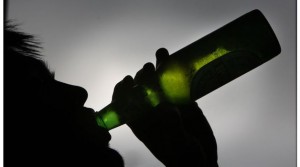 DESPITE threats of sanctions against bar owners allowing teenage patrons, young persons have continued patronising beer-drinking places.
DESPITE threats of sanctions against bar owners allowing teenage patrons, young persons have continued patronising beer-drinking places.
Beer-guzzling by teenagers has continued, some doing it for fun just because they have seen their colleagues drinking.
The situation has been worsened by the sale of alcoholic beverages even in unauthorised places, including markets and on the streets.
What makes matters worse is the availability of easy-to-carry bottles of spirits which seem to have replaced the banned tujilijili sachets.
Yet the effect of these intoxicants on the health of the young persons seems to have been ignored not just by the young imbibers themselves but also those who sell them the stuff.
Of course the law as it currently is does not have much to do with the health and well-being of citizens other than the thought that someone under the age of 18 is too young to take alcohol.
But health personnel say that alcohol does stunt growth, and at age 14, for instance, one’s body is still developing, especially the brain, so early and extended alcohol use will hurt his/her body significantly.
One study has actually shown that memory ability of the young one may be negatively affected by about 10 per cent as a result of alcohol, just like any other drug abuse.
So it is not just the anti-social behaviour or accidents as some of the after-effects of beer-drinking, but medical doctors advise that one’s brain does not fully develop until one is, say 25, so teenage drinking could stunt that growth.
There is also the risk of one becoming an alcoholic at an early age, and this is what those against beer drinking by teenagers want to avoid.
This then means that bar owners, civil society groups and members of the general public should put their heads together and partner with local authorities such as the Ndola City Council in the fight against alcohol abuse by teenagers.






